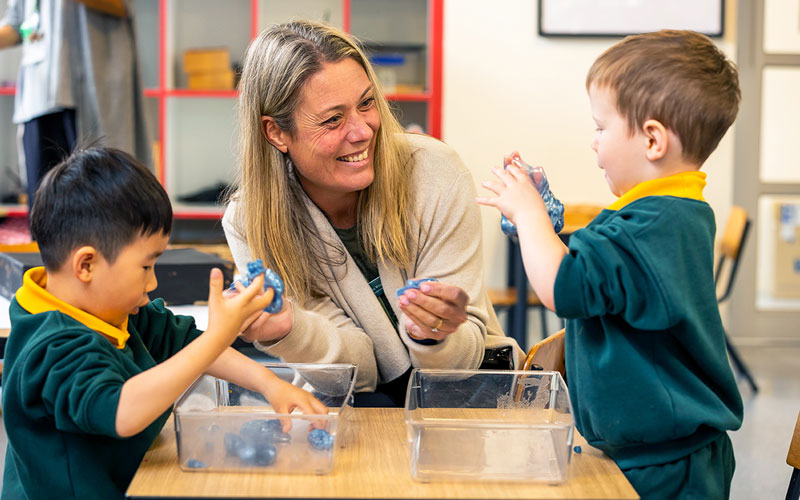Early learning centers are paramount in a child’s educational journey and overall growth. These centers are where young minds begin to explore, discover, and lay the foundation for a lifetime of learning. In this guide, you’ll delve into the essential aspects of an early learning centre.
Types of Early Learning Centers
Early Learning Centers come in various types, each catering to specific age groups and educational philosophies. Here are some common types:
Daycare Centers
These centers offer childcare services for infants, toddlers, and young children. They focus on providing a safe and nurturing environment and presenting basic learning activities.
Preschools
Typically created for children aged 3 to 5, preschools highlight early education through structured activities. They focus on preparing children for kindergarten.
Montessori Schools
Montessori education is child-centered and fosters independence and self-directed learning. These schools are known for their hands-on approach and mixed-age classrooms.
Head Start Programs
Aimed at children from low-income families, Head Start programs provide wide early childhood education, nutrition, and health services to prepare kids for school.
Family Child Care Homes
In these settings, a caregiver looks after a small group of children in their home. It offers a home-like atmosphere and individualized attention.
Benefits of Early Learning Centers
Early Learning Centers offer numerous benefits to children, parents, and the community, such as:
1. Self-Identity
In these environments, children learn about themselves, their unique qualities, and their interests. They gain trust and self-awareness as they dig various activities and interact with peers and teachers. This self-identity starts the foundation for their future growth.
2. Social-Emotional Skills
Through interactions with teachers and peers, kids learn to understand and manage their emotions, communicate effectively, and build healthy relationships. They develop empathy, cooperation, and problem-solving abilities. These skills are invaluable in their social interactions and have a lasting impact on their overall well-being.
3. Wellness Habits
These centers often emphasize the importance of healthy eating, physical activity, and good hygiene. Children learn about nutritious food choices, engage in age-appropriate physical activities, and understand the significance of proper hygiene routines. These habits help children grow physically strong and maintain good health, reducing the risk of various health issues as they age.
4. Communication and Problem-Solving Skills
Through daily interactions and structured activities, kids learn how to express themselves effectively, both verbally and non-verbally. They also develop problem-solving abilities as they tackle age-appropriate challenges and engage in activities that require critical thinking. These skills are essential for academic success and navigating the world’s complexities.
5. Eagerness to Learn
Children develop a love for learning through engaging activities and an environment designed for exploration. They discover that learning can be exciting and enjoyable. It sets the stage for a lifelong enthusiasm for acquiring knowledge. This eagerness to learn extends beyond academics and helps children become curious, resourceful, and adaptable.
6. Listening and Vocabulary
Early Learning Centers are pivotal in enhancing a child’s listening skills and expanding their vocabulary. Through storytelling, group discussions, and interactive play, children learn to listen attentively and express themselves effectively. This foundation in language and communication is essential for academic success and social interactions.
Remember, a robust vocabulary and strong listening skills enable children to comprehend complex ideas. It even helps them express their thoughts and emotions accurately. In return, this ensures they are well-prepared for school and future communication challenges.
Prepare Your Child for Early Learning Today
Whether you’re a parent or looking to make an informed choice about early childhood education, these insights empower you to prioritize quality, safety, and your child’s well-being. Indeed, early learning centers are where curiosity and education intertwine.












